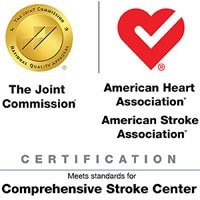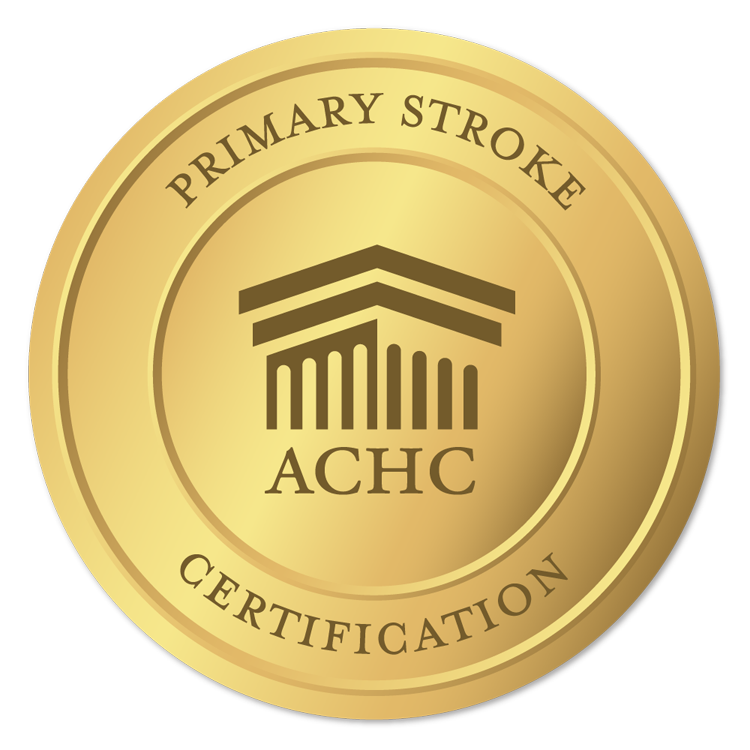Warning Signs of Stroke
Anyone Can Have a Stroke: Do You Know What to Do?
-
Comprehensive Stroke Center Certification

MyMichigan Medical Center Saginaw has earned the designation of Comprehensive Stroke Center by The Joint Commission, a national healthcare accreditation organization. It is the only Accredited Comprehensive Stroke Center in the region and one of 14 in Michigan. This designation means that the hospital can treat even the most complex stroke cases 24 hours a day, 7 days a week.
-
Primary Stroke Certification

The stroke program at MyMichigan Medical Center Midland has been certified as a primary stroke center by ACHC, an independent accreditation program. This certification confirms that our stroke program is providing high quality care as determined by an independent, external process of evaluation and demonstrates our ongoing commitment to quality and patient safety.
-
Stroke Ready Certification

MyMichigan Medical Center West Branch was certified as a stroke-ready hospital by the Accreditation Commission for Health Care (ACHC). This certification confirms through an independent evaluation that the program is complying with national standards and following evidence-based practices that improve stroke patient outcomes and reduce risk.
A stroke is a "brain attack" that occurs when a blood vessel in your brain is clogged or ruptured. This interrupts the flow of blood and oxygen to your brain, and brain cells can start to die. Stroke can lead to death or long-term disability, such as partial paralysis or loss of memory, speech or other important abilities.
New treatments are available that can save lives or minimize the damage from a stroke. The sooner patients get treatment, the better their chances of full recovery. That's why it is important for everyone to know the warning signs and what to do.
Know the Warning Signs
Balance - Sudden loss of balance or coordination
Eyes - Sudden vision loss or changes in vision
Face - Uneven smile, weakness on one side of the face
Arm - Sudden weakness in one arm or leg
Speech - Slurred or confused speech, difficulty speaking
Time - Dial 911 right away
Don't Wait. Don't Drive. Dial 911.
Nobody wants to believe it's a stroke. So they wait for the symptoms to go away. And sometimes the symptoms do disappear. But even brief, temporary interruptions in blood flow, known as TIA's or "mini-strokes" could lead to a major stroke and should be treated immediately.
If you suspect someone is having a stroke, don't wait, and don't try to drive them to the emergency room yourself. Studies show patients get treated an average of thirty minutes faster when they arrive by ambulance than by private car1. When you dial 911, paramedics can start testing and treatment the minute they arrive, saving critical time once you reach the hospital.
Learn More About Stroke
1. Canto, et. al, “Use of Emergency Medical Services in Acute Myocardial Infarction and Subsequent Quality of Care.” Circulation, 2002, Vol. 106, p. 3018.
